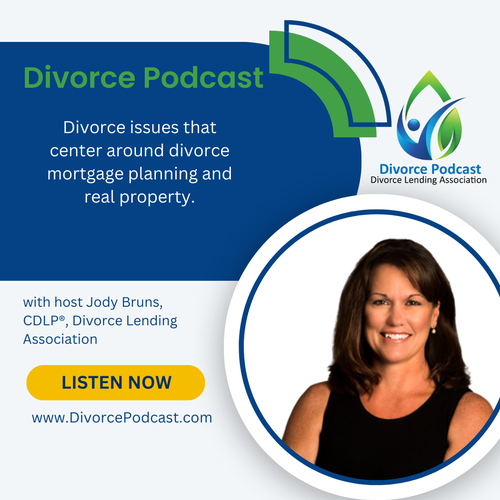 When it comes to divorce, the economics can be daunting. It would help to consider the financial costs of the breakup and the long-term consequences of splitting assets, managing mortgage payments, and dividing debts. In this blog post, we'll explore the economic implications of divorce, from the impact of mortgage payments to how finances can be divided equitably. We'll also be offering up tips and advice for navigating the divorce process when it comes to your mortgage and finances.
When it comes to divorce, the economics can be daunting. It would help to consider the financial costs of the breakup and the long-term consequences of splitting assets, managing mortgage payments, and dividing debts. In this blog post, we'll explore the economic implications of divorce, from the impact of mortgage payments to how finances can be divided equitably. We'll also be offering up tips and advice for navigating the divorce process when it comes to your mortgage and finances.
Understanding the Economic Impact of Divorce
Divorce is often an emotional and stressful time, but it can also significantly impact your finances. One of the most significant financial considerations is the impact on your mortgage. For many couples, their home is their most valuable asset, which can be a source of contention during a divorce settlement.
Regarding mortgages and divorce, there are a few key things to remember. First, if you and your spouse have a joint mortgage, you must determine what to do with the property. This can involve selling the house and dividing the proceeds, or one person may choose to keep the home and refinance the mortgage in their name.
Refinancing can be a good option for some divorcing homeowners, but it's essential to understand the potential impact on your credit score and other finances. Refinancing may not be feasible for everyone, depending on income and other factors.
Understanding the economic impact of divorce is critical to making informed decisions about your mortgage and other finances during and after the divorce process.
The Role of Housing and Mortgage in Divorce Settlements
Divorce is a complex process that often divides shared assets, including property. One of the most significant financial assets that couples have is their home, and it is essential to understand the role of housing and mortgage in divorce settlements.
Couples have two primary options for housing during divorce: selling the home and dividing the profits or allowing one partner to keep the property and buy out the other's share. Each option has pros and cons and must be carefully considered to make the right decision.
Refinancing is often necessary for the partner keeping the home to remove the ex-partner's name from the mortgage. It can be challenging to obtain financing without the other spouse's income, and many lenders require three to six months of on-time alimony or child support payments before considering an application, plus three years of continuance from the closing date of the new loan. Additional qualification requirements may exist to use the support income as qualified income.
Moreover, the decision to refinance and retain the marital home by one party should be made as early in the divorce process as possible to ensure that the ability to obtain mortgage financing is doable and protect both partners' credit scores and the ability for the vacating spouse to secure housing.
Navigating a divorce settlement's housing and mortgage component is critical to ensure a financially stable future.
Selling the House vs. Keeping the House: Pros and Cons
One of the most significant decisions in a divorce involving a mortgage is whether to sell the house or keep it. While both options have pros and cons, it ultimately depends on each couple's financial and emotional circumstances.
Selling the house means that both parties will receive their share of the equity in the property. This cash can help pay off debts, buy new homes, or invest in new opportunities. However, selling may also result in losing sentimental value, being forced to move, and dealing with the uncertainty of finding a new place to live.
On the other hand, keeping the house may provide children familiarity and stability. It also allows for the possibility of refinancing to lower monthly payments. However, it may be financially burdensome due to maintenance costs, taxes, and mortgage payments.
Ultimately, deciding whether to sell or keep the house involves weighing financial and emotional factors. Consult with a financial advisor or Certified Divorce Lending Professional to understand the implications of either option and make an informed decision.
Refinancing Options for Divorcing Homeowners
A home sale is one of the most common ways to divide marital assets during a divorce. However, if one spouse wants to keep the home, they may have the option to refinance the mortgage in their name. Refinancing a mortgage during divorce can be a complex process, but it can also be a beneficial option for those who want to keep their home.
When refinancing, the divorcing homeowner can take out a new mortgage that pays off the existing loan and also pays out the other spouse's share of the equity. This means the remaining spouse will be solely responsible for the mortgage payments and property ownership.
Before considering refinancing, assessing if the individual can afford to make the monthly payments independently is essential. Lenders will also look at credit scores, employment status, and other financial factors when determining if they qualify for a refinance.
Obtaining an Equity Buy-Out Preapproval with a Certified Divorce Lending Professional (CDLP®) will help alleviate any concerns from both sides of the divorce.
It is important to seek the guidance of a financial advisor or divorce attorney to help navigate the process and understand all the potential financial implications of refinancing during a divorce.
Navigating the Complexities of Joint Mortgages after Divorce
Divorce can be challenging and stressful, particularly when navigating the complexities of joint mortgages after a breakup. Joint mortgages can be complicated since both parties have an equal stake in the property, and financial obligations can quickly become tangled.
When divorcing, couples have several options regarding their joint mortgage. They can sell the property and split the proceeds, one party can buy out the other's share, or both parties can keep the property and continue to make mortgage payments together. Refinancing is also an option, although qualifying for a new mortgage without a spouse's income can be difficult.
One of the most important considerations is ensuring that any agreements regarding the joint mortgage are legally binding. It's essential to understand each party's obligations and rights and to get professional advice on the most appropriate option.
Overall, navigating the complexities of joint mortgages after divorce can be overwhelming. However, seeking advice from a Certified Divorce Lending Professional or financial advisor can help couples understand their options and make the best decisions for them.
Managing Credit Scores and Debts After Divorce
Divorce can have a significant impact on your credit score and debts. One of the primary ways this can happen is through your mortgage. If both were listed as joint homeowners, you were likely jointly responsible for paying the mortgage. Even if one of you keeps the house, you must address any outstanding mortgage debt.
If you're keeping the house, you may need to refinance the mortgage to remove your ex-partner from the loan. This will require a credit check, and any missed or late payments could negatively impact your credit score. Additionally, you'll want to ensure you have enough income to cover the monthly payments and any other expenses associated with owning a home.
It's also important to remember that any joint credit cards or loans must be addressed after divorce. This may require closing joint accounts and transferring the balance to individual accounts. Working with your ex-partner and creditors is important to ensure that any debts are managed appropriately.
Working with a Certified Divorce Lending Professional
Certified Divorce Lending Professionals know divorce. Certified Divorce Lending Professionals (CDLP®) are licensed mortgage professionals who have completed a comprehensive and rigorous certification program with ongoing continuing education and development in divorce mortgage planning. Their ability to expand their vision of the normal scope of the traditional mortgage professional is a great differentiator from those without training who have limited tunnel vision of client-to-application.
The role of the CDLP® is to support not only help the divorcing client but the other members of the professional divorce team through the 4-phases of divorce mortgage planning. They are creative thinkers who can provide clarity and value in helping divorcing homeowners make more informed decisions regarding their home equity solutions and divorce mortgage planning strategies.
And for all of us involved to provide a higher level of service to divorcing clients, we must acknowledge how the home can impact multiple facets of the divorce itself and life after divorce.
Involving a Certified Divorce Lending Professional (CDLP®) early in the divorce settlement process can help the divorcing homeowners set the stage for successful mortgage financing in the future.
This is for informational purposes only and not for the purpose of providing legal or tax advice. You should contact an attorney or tax professional to obtain legal and tax advice. Interest rates and fees are estimates provided for informational purposes only and are subject to market changes. This is not a commitment to lend. Rates change daily – call for current quotations.
Copyright 2023—All Rights Divorce Lending Association





